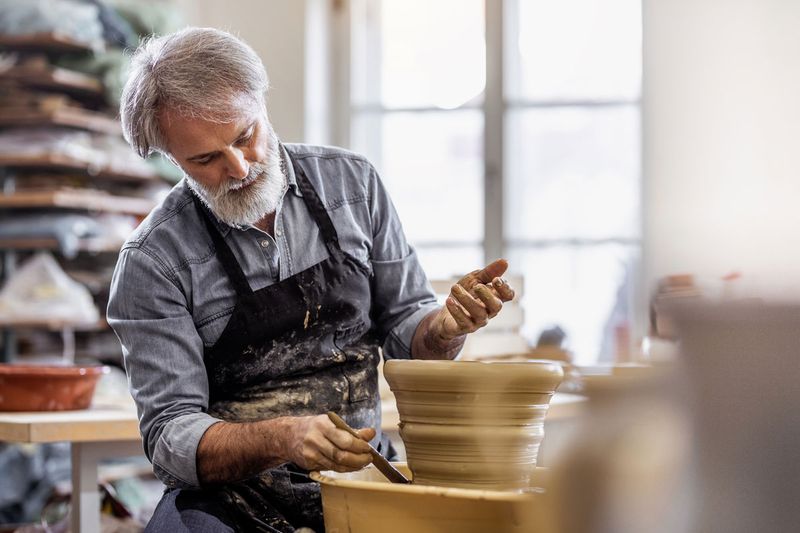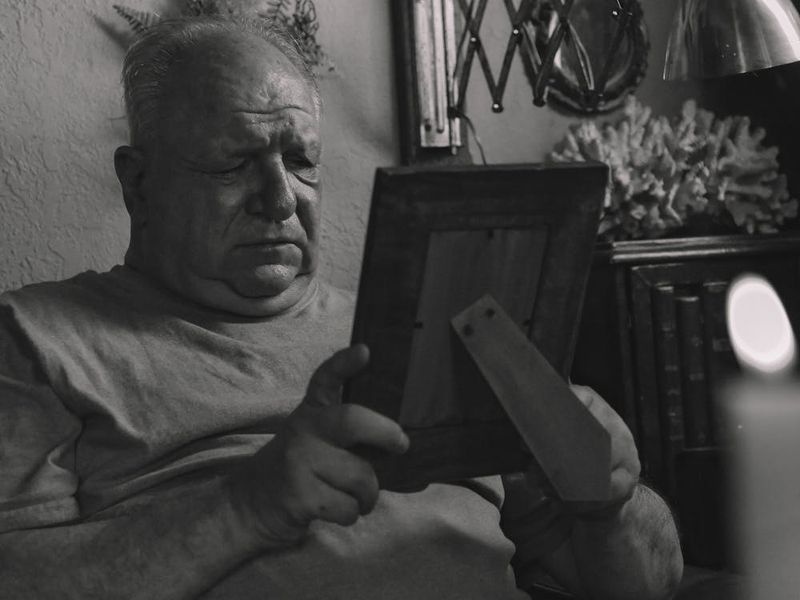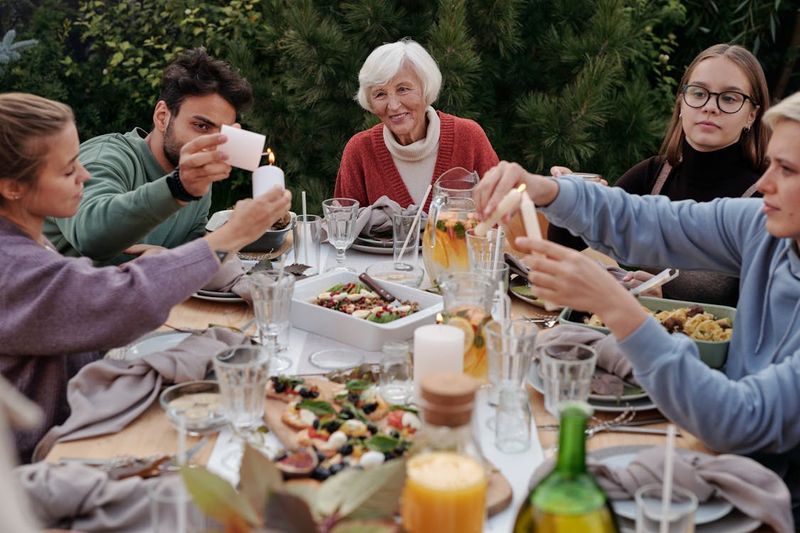17 Empowering Ways To Thrive Again After Losing Your Spouse

After the funeral, the cards, and the condolences, there’s a quiet, overwhelming question: “Now what?” The world keeps spinning, but yours feels like it stopped.
And in the quiet that follows, the question of “How do I live again?” doesn’t have an easy answer. Here are 17 ways you can begin—not to replace the life you lost, but to rebuild the one still waiting for you.
1. You let the hard days exist without shame

You don’t have to be okay all the time. Some days will be dark, and that’s part of healing. Honor your feelings without forcing them away. It’s important to recognize that these challenging periods are not setbacks but steps in your journey.
Accepting your emotions requires courage. Allow yourself to feel them without judgment. Grief is not a linear process, and there’s no timeline for feeling better. Embrace the ebb and flow of emotions as they come.
By giving yourself permission to have hard days, you create space for genuine healing. This gentle acceptance helps you build resilience over time. It’s not about eliminating sorrow but living with it more peacefully.
2. You rediscover what brings you peace—not just distraction

Peace can be elusive when your world feels upside down. By rediscovering activities that bring you comfort, you slowly stitch together a new sense of self. Engage with the things that genuinely soothe your soul rather than just passing the time.
Consider activities that align with your core values. Maybe it’s reading, painting, or taking long walks in nature. These moments of peace help ground you and offer a gentle reminder of life’s beauty.
Find what resonates with you on a deeper level. It might be something you enjoyed before or a completely new endeavor. Whatever it is, let it be a refuge and a source of quiet joy.
3. You allow yourself to feel joy without guilt

Joy can feel like a betrayal when you’re grieving. Yet, embracing happiness honors your spouse’s memory by acknowledging the love you shared. Joy doesn’t erase the pain; it coexists with it, enriching your life.
Allow yourself to smile and laugh without guilt. These moments are not a sign of forgetting but a testament to the healing journey. Your spouse’s memory can live in your happiness, just as much as in your sorrow.
Accepting joy is a courageous act of self-care. It’s about permitting yourself to experience life’s lighter moments, knowing that they don’t diminish your love or your loss.
4. You create routines that reflect who you are now

Routines offer comfort and a sense of normalcy. Tailor them to reflect who you are today, not just who you were as part of a couple. Create rituals that support your current needs and aspirations.
Integrate activities that bring peace into your daily life. Whether it’s morning yoga or an evening walk, these routines can anchor you. They provide structure while honoring your evolving self.
By establishing new routines, you affirm your identity beyond the loss. This process fosters growth and self-discovery, helping you thrive as an individual.
5. You open up to new friendships and deeper connections

Healing thrives in the soil of connection. Opening up to new friendships offers fresh perspectives and support. It helps you weave a new social fabric that comforts and challenges you.
Seek out communities that share your interests or values. Whether it’s joining a book club or a volunteer group, these connections contribute to your healing journey. They remind you that you’re not alone.
Building new relationships doesn’t replace the ones you’ve lost but enriches your life in unexpected ways. Embrace the opportunity to grow your circle and deepen your connections.
6. You revisit places you once avoided—on your terms

Places hold memories, both joyful and painful. Reclaim them at your own pace, turning them into spaces of healing rather than avoidance. Start with places that feel more accessible and gradually expand your comfort zone.
Returning to these locations can evoke mixed emotions. Allow yourself to process them as they arise. It’s a step toward reclaiming your narrative, transforming spaces from sources of pain to places of solace.
By revisiting these places, you assert your agency over your grief journey. It’s a powerful way to honor your memories while fostering personal growth.
7. You try something completely unfamiliar

New experiences can be invigorating. Trying something unfamiliar reminds you of your capacity for growth and adaptability. It can inject a sense of novelty and excitement into your life, breaking the patterns of grief.
Choose activities that challenge you in a positive way. Whether it’s a pottery class or learning a new language, these experiences help shift your perspective. They remind you that you’re capable of more than you might realize.
Embrace the unfamiliar with an open mind and heart. It’s an opportunity to discover new passions and talents, helping you move forward in your journey.
8. You stop apologizing for how long it’s taking

Grief has no timetable. Release the pressure to conform to others’ expectations. Your healing journey is uniquely yours and unfolds at its own pace. By accepting this, you allow yourself to heal without the burden of apology.
Embrace the slow unfolding of your emotions. It’s okay to take your time. Grief is a complex process, and rushing it doesn’t lead to genuine healing. Give yourself the grace of patience.
By stopping the apologies, you affirm your right to grieve as you need. This self-compassionate approach fosters resilience and honors your emotional truth.
9. You ask for help—and accept it

Strength doesn’t mean standing alone. Asking for help is a brave step towards healing. It’s an acknowledgment that you don’t have to face this journey by yourself.
Reach out to friends, family, or support groups. Accept the assistance offered with gratitude. Sharing your burden can lighten the load and provide much-needed comfort.
By accepting help, you open yourself to a network of support. It’s a reminder that you’re surrounded by love and care, even in the darkest times.
10. You write, speak, or create your own way through the pain

Expression is a powerful healing tool. Writing, speaking, or creating art allows you to process emotions in a personal and profound way. It’s a form of release that helps articulate the inexpressible parts of grief.
Find the medium that resonates with you. Whether it’s journaling, painting, or storytelling, let it become your voice. These creative outlets provide a safe space to explore and validate your feelings.
Through creation, you transform pain into something tangible and meaningful. It’s a courageous act of self-expression that supports your healing journey.
11. You make space for laughter, even when it surprises you

Laughter is healing, even when it catches you off guard. Allow it to enter your life without guilt. These moments bring lightness and remind you of the joy still present in the world.
Share laughter with friends or through watching a funny movie. It doesn’t diminish your grief; it coexists with it, offering reprieve from the heaviness.
Embrace the unexpected joy that laughter brings. It’s a testament to the resilience of the human spirit and a reminder of life’s enduring brightness.
12. You stop shrinking your grief for others’ comfort

Your grief deserves space. Letting it exist freely is part of your healing. You don’t have to diminish your feelings to make others comfortable. It’s okay to be unapologetically honest about where you are.
Communicate your needs to those around you. It’s a brave step towards authenticity. By doing so, you create an environment where you can grieve openly and without judgment.
This self-affirmation strengthens your emotional resilience. It’s about honoring your experience as it is, not as others perceive it should be.
13. You reflect on what this loss taught you about love

Loss can illuminate the depths of love. Reflect on what your spouse taught you about love and life. These insights are treasures that continue to shape you.
Consider the lessons learned from your relationship. They are part of your legacy, guiding you forward. This reflection can offer comfort amidst the pain.
By embracing these lessons, you honor your spouse’s memory. It’s a way to carry their love into the future, enriching your own journey.
14. You create new traditions to honor the past while embracing the future

Traditions offer continuity and connection. Create new ones that honor the past while welcoming the future. These rituals can be a blend of old memories and fresh beginnings.
Consider incorporating elements that celebrate your spouse’s life. It could be lighting a candle on special occasions or sharing stories that keep their memory alive.
Creating new traditions fosters healing and growth. They provide a sense of belonging and hope, reminding you that life’s tapestry continues to be woven.
15. You allow yourself to be seen in your vulnerability

Vulnerability is not weakness; it’s strength. Allowing yourself to be seen in your true state is a courageous act. It invites connection and understanding from those around you.
Share your journey with trusted friends or support groups. This openness fosters deeper connections and provides a safe space for healing.
By embracing vulnerability, you cultivate resilience and authenticity. It’s a reminder that you’re not alone, and your story is worth sharing.
16. You look in the mirror and see more than what’s missing

Grief can overshadow your sense of self. Look in the mirror and see the entirety of who you are today, not just what’s missing. Recognize the strength and beauty that remain.
Focus on the qualities you’ve discovered through this journey. Appreciate the growth and resilience you’ve gained. This perspective shift is empowering.
By celebrating your present self, you honor both your past and your future. It’s a gentle reminder that you’re whole, even amidst loss.
17. You realize you’re still becoming—and that’s allowed

Your journey didn’t end with loss; it transformed. Embrace the ongoing process of becoming, knowing that change is a constant companion. It’s a reminder that life continues to evolve.
Celebrate the person you are becoming. Every step forward is a testament to your resilience and hope. Allow yourself the grace to grow and adapt.
By accepting this transformation, you honor your journey. It’s a powerful affirmation of life’s enduring possibilities.
